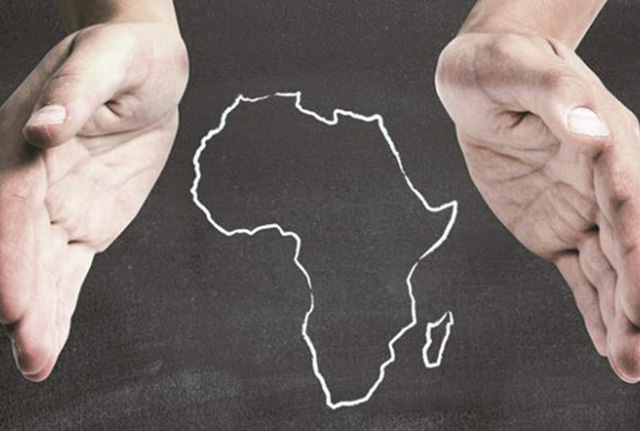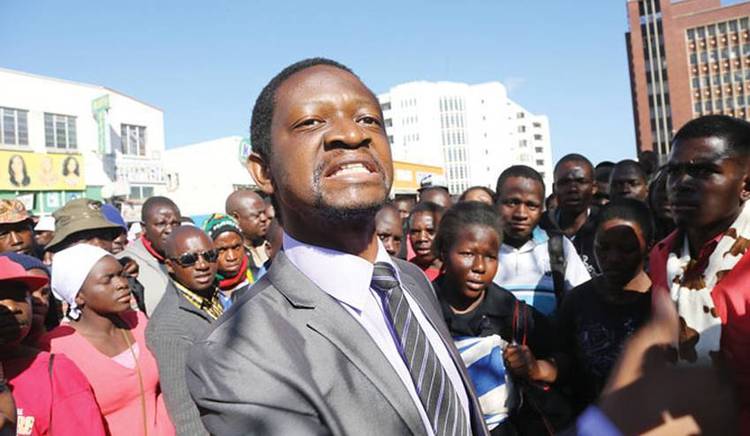Students show how it feels to be African

Lovemore Chikova In Beijing, China
Former South African President Thabo Mbeki made a famous speech titled “I am an African” in 1996, in which he described the continent and his country in a unique way. He was the deputy president of South Africa under the late President Nelson Mandela when he delivered the speech on behalf of the African National Congress. And the occasion was the passing of the new Constitution of South Africa — which heralded a new era after the demise of apartheid.
Throughout the speech, former President Mbeki punctuated with the phrase: “I am an African”. At one point he got everyone on their feet when he proudly pronounced: “Today it feels good to be an African”. The speech enhanced President Mbeki’s status as an orator and earned him more accolades as a committed pan-Africanist. I was left reflecting on this speech on Saturday last week while attending an event dubbed Africa Speech Night and Music Contest in Beijing, China.
The event was organised by an entity called Appreciate Africa Network, which is based in Beijing, but has ambitions to promote Africa throughout the world. Appreciate Africa Network was founded by Samantha Sibanda, a Zimbabwean who has settled in Beijing.
During the event on Saturday, students from 15 African countries, who are studying in China, took to the stage to promote their nations before a cosmopolitan audience. What touched many in the crowd was how the students demonstrated an eagerness to change the negative views on their countries.
They spoke glowingly about their countries’ history and culture, that one could easily have been left reminiscing, like former President Mbeki, that; “Today it feels good to be an African”.
The example set by the students should be emulated as a way of promoting the continent and presenting true facts about its status. The students were from Uganda, Kenya, Zimbabwe, Cameroon, Rwanda, Egypt, Zambia, Botswana, Algeria, Sierra Leone, South Sudan, Cape Verde, Nigeria, Mauritius and South Africa.
It became obvious to those present that time to depend on other people to tell the true African story is over. And examples of the distortion of the African story abound, especially if one considers how the Western media has been portraying the continent.
It seems the major weapon which some media in the West have successfully used in their bias against the continent is deliberately leaving out the proper background to their stories. Most woes which confront Africa today are usually blamed on the particular countries, when in fact most of them emanate from the troubles brought by colonialism.
Putting the African story in context will definitely portray a new image for Africa and solutions can easily be found for future development. The students from the 15 African countries did justice in their presentations, which traced their history, located development aspirations and proffered solutions.
They managed to demonstrate in a little space of time how their individual countries were forging ahead despite the disadvantages they face. The winner of the contest, Godfrey Lloyd Randall from Sierra Leone, passionately talked about how his country was badly affected when it was designated as a port used by slave traders.
He managed to show how Sierra Leone emerged from that “dark” era and is now forging ahead with development in peace and tranquillity. From his presentation, one was left longing to visit Sierra Leone to discover its “hidden” treasures in tourism and development.
Zimbabwean representative, Glen Dhliwayo, who won the best dressed male contestant, also did justice in portraying the country to the audience. He spoke glowingly about the potential the country possess in tourism, mining, infrastructure and agriculture despite the problems it is facing.
It is a fact that most of the problems facing Zimbabwe emanate from the illegal sanctions imposed by Western countries at the turn of the millennium that have affected its progress. High profile guests at the function included Zimbabwe’s ambassador to China Mr Paul Chikawa, officials from other African embassies in Beijing and business people from different countries.
The first runner-up went to Wakonyu Mukoma from Kenya, who, dressed in a Masai tribal outfit, talked about her country’s changing landscape both politically and economically. She also showcased why outsiders should visit Kenya to explore its vast wildlife and other tourist attractions.
The second runner-up, Mwiza Vwalika from Zambia, made a broad presentation of his country which helped debunk a number of stereotypes. Sherif Salman from Egypt was judged the most promising male after he gave a good account of his country, starting with its historical attractions like the pyramids.
For the females, the most promising speech award went to Christelle Mukazera from Rwanda, who showed how her country has recovered from the genocide which claimed nearly one million lives within four months in 1994.
It was one of the most touching speeches and in awarding Christelle the prize, the judges noted how she was passionate about her country. The best dressed female was Hadjar Bessaih from Algeria.
In a show of cooperation between China and Africa, some Chinese nationals took part at the event and showcased their talents. Lixia performed Oliver Mtukudzi’s Neria without any hassles, while Uyi Lee brought the house down with Miriam Makeba’s Pata Pata.
Also on offer at the event was an African cuisine, which included sadza/isitshwala, madora, matemba and chicken. Sadza is a staple food in many African countries known in east and central Africa as ugali in Swahili, pap in South Africa, phaletshe in Botswana and nsima in Zambia and Malawi.
Sibanda told the guests a little interesting story on how she ended up forming Appreciate Africa Network. “One of the reasons I started Appreciate Africa Network was because of what one of my professors said during my Masters of Business Administration course,” she said.
“She showed us some Masai people from Kenya and she said; ‘Imagine if you were to put this man in a car. He is likely to die of heart attack than if you put him in a den of lions’. “I remember that day I was shivering with anger and I was the only African and black person in my group. I gave her a piece of my opinion and walked out of the lecture.
“I spend a week without going to the classes and when I returned we were asked to write what we know about continents. “We were 20 in that class and 19 of the students wrote that Africa had poverty, diseases, hunger and war.” Yet, it is this organisation which came out of such anger which is helping portray the image of Africa in a positive way.
It would be more encouraging if such events are held more often as a way of educating other nations on the true status of Africa. From the presentations, it became clear that the continent’s biggest asset is its tourist attraction centres and the culture which is still intact in many countries.
With China promising to send 600 million outbound tourists by 2020, it is time Africa became aggressive in its marketing strategy to have a fair share of the tourists. Sibanda formed Appreciate Africa Network in 2013 to “create awareness about Africa, African people and their culture” not only in China, but in the whole of Asia. The organisation also seeks to bring to the fore contributions that Africans are making to the development of the world.









Comments